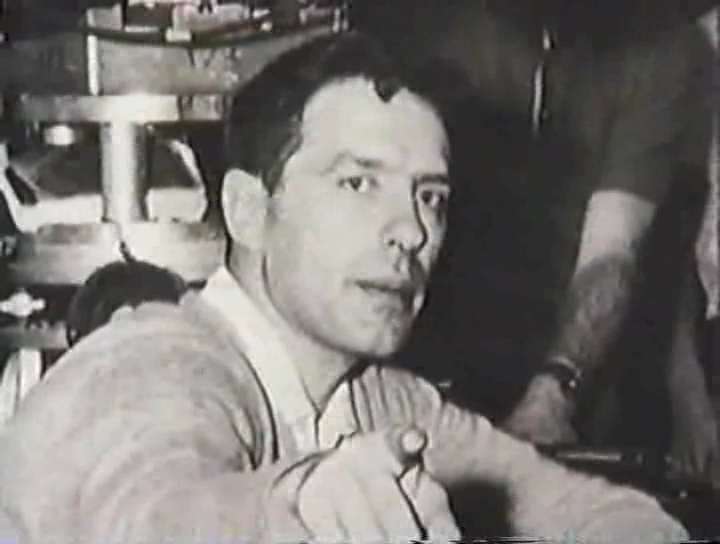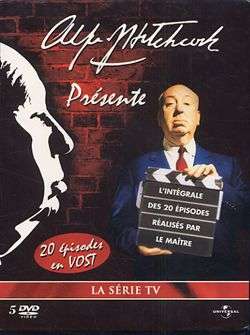
PBS documentary on John Cassavestes featuring comments from Peter Bogdanovich, Martin Scorsese, as well as Peter Falk and Ben Gazzara.Read More »

PBS documentary on John Cassavestes featuring comments from Peter Bogdanovich, Martin Scorsese, as well as Peter Falk and Ben Gazzara.Read More »
Opening show from the second season of the “Columbo” TV series, starring Peter Falk as Lt. Columbo. Guest star is John Cassavetes as a famous symphony conductor who murders his mistress, an up-and-coming pianist (Anjanette Comer), and tries to make it look like suicide. Needless to say, Columbo unravels the truth in his typical entertaining fashion.
This episode is listed on the IMdB as having been directed (uncredited) by Cassavetes and Falk together with the credited director, Nicholas Colasanto. The same claim is made in Thierry Jousse’s Cassavetes book. Ray Carney, in Cassavetes on Cassavetes, writes, however, that before working together on Elaine May’s Mikey & Nicky,Read More »

NBC’s “Suspicion” was a 40 episode series (which ran from 1957 to 1958) in a similar mold to “Alfred Hitchcock Presents”. Alfred Hitchcock directed the series permiere episode, “Four O’Clock”. It was originally broadcast on 30/Sep/1957.
Synopsis :
Paul Steppe, a successful watchmaker, begins to suspect that his wife Fran is seeing another man. Consumed with jealousy, Steppe decides to murder her. His plan, he feels is ingenious. Painstakingly Steppe applies all of his watchmaking skills to the construction of a time bomb. He plans to slip into his house in the afternoon without his wife’s knowledge, leave the bomb and then return to his jewelry store unnoticed and unsuspected.Read More »
Plot Synopsis from ALLMOViE:
Though he made allusions to his own life in all of his films, Fanny and Alexander was the first overtly autobiographical film by Ingmar Bergman. Taking his time throughout (188 minutes to be exact), Bergman recreates several episodes from his youth, using as conduits the fictional Ekdahl family. Alexander, the director’s alter ego, is first seen at age 10 at a joyous and informal Christmas gathering of relatives and servants. Fanny is Alexander’s sister; both suffer an emotional shakedown when their recently-widowed mother (Ewa Froling) marries a cold and distant minister. Stripped of their creature comforts and relaxed family atmosphere, Fanny and Alexander suddenly find their childhood unendurable. The kids’ grandmother (Gunn Wallgren) “kidnaps” Fanny and Alexander for the purpose of showering them with the first kindness and affection that they’ve had since their father’s death. This “purge” of the darker elements of Fanny and Alexander’s existence is accomplished at the unintentional (but applaudable) cost of the hated stepfather’s life. Ingmar Bergman insisted that Fanny and Alexander, originally a multipart television series pared down to feature-film length, represented his final film, though within a year after its release he was busy with several additional Swedish TV projects, and he returned to make one more theatrical release movie before his death – the 2003 Saraband. Oscars went to Fanny and Alexander for Best Foreign Film, Best Cinematography (Sven Nykvist), Best Costume Design and Best Art Direction/Set Decoration.Read More »
Dave McDougall at MUBI.com
Last Monday night, MoMA played two installments from the series “Tous les garçons et les filles de leur âge…”, a series of one-hour television episodes “in which French directors were asked to contribute films based on their recollections of adolescence” (BFI). The first episode shown was Chantal Akerman’s Portrait of a Young Girl at the End of the 1960s in Brussels.
Akerman’s episode is an achievement of an entirely different level. It moves beyond being one of the great coming-of-age films; it is simply one of the great films. A moving, multifaceted, and magical hour, presented with honesty and subtle artistry.Read More »